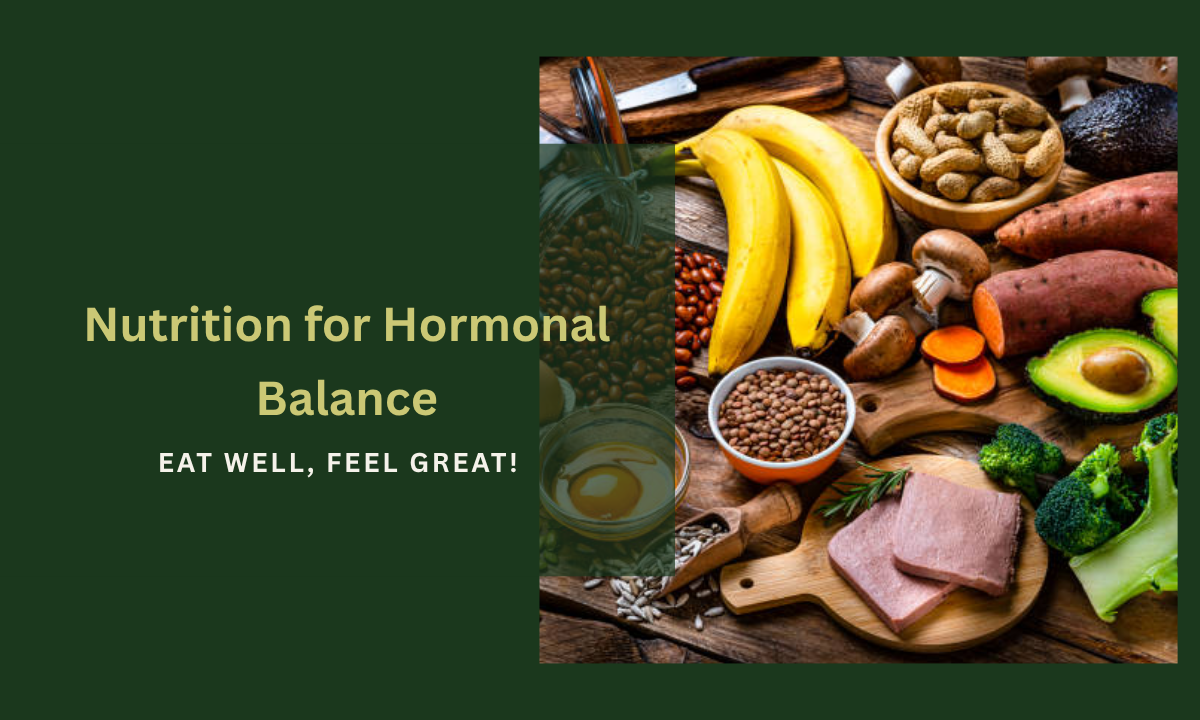After 30, hormonal balance becomes one of the most important yet overlooked aspects of women’s health. Many women experience subtle changes, mood swings, fatigue, irregular periods, hair loss, and stubborn weight gain without realizing that their hormones are the real cause.
As a nutritionist in Delhi, I often meet women who say, “I’m eating right, exercising, and sleeping well, but my body still feels off.”
The truth is, after 30, estrogen, progesterone, and thyroid hormones start fluctuating, impacting your mood, energy, and metabolism. The good news? Food can make a huge difference.
Stay with me till the end; I will reveal one simple daily habit that can help you naturally reset your hormones.
Understanding Hormonal Balance in Women
Hormonal balance in women means that key hormones like estrogen, progesterone, insulin, and thyroid are in sync.
When they are balanced, you feel energetic, emotionally stable, and maintain a healthy weight. But when they are not, symptoms like bloating, low libido, acne, hormonal imbalance and hair loss begin to appear.
These imbalances can occur due to stress, lack of sleep, poor diet, or over-dependence on caffeine and processed foods.
That’s why nutrition plays such a powerful role in restoring balance.
The Role of Nutrition in Maintaining Health

The role of nutrition in maintaining health goes far beyond calories and weight. Food is information for your hormones. Every bite you take signals your body to either heal or harm.
When you eat balanced meals containing healthy fats, fiber, lean proteins, and essential vitamins, your body can regulate hormone production naturally.
Best Foods for Hormonal Balance
Here are some of the best foods for hormonal balance that can help you stay in sync after 30:
| Food Group | Examples | Why It Helps |
|---|---|---|
| Healthy fats | Avocado, nuts, seeds, olive oil | Supports estrogen production and reduces inflammation |
| Fiber-rich foods | Whole grains, lentils, fruits, and vegetables | Balances blood sugar and removes excess estrogen |
| Protein | Eggs, tofu, chicken, beans | Stabilizes insulin and supports muscle health |
| Micronutrients | Leafy greens, berries, seeds | Provide hormonal balance vitamins for women, like B6, E, D, and magnesium |
Tip: Include flaxseeds daily; they contain lignans, which help balance estrogen levels naturally.
Common Signs of Hormonal Imbalance
Wondering if your hormones are out of balance? Here are common red flags:
- Unexplained weight gain or bloating
- Irregular or painful menstrual cycles
- Acne or dull skin
- Hair thinning or hormonal imbalance, and hair loss
- Fatigue or low mood
- Poor sleep or brain fog
If these sound familiar, don’t panic; small nutrition changes can work wonders.
Hormonal Balance Remedies That Actually Work
Here are a few simple hormonal balance remedies that are natural, effective, and safe:
- Eat on time; Irregular eating confuses your metabolism. Stick to consistent meal timings.
- Cut down on sugar; it spikes insulin and triggers inflammation, which worsens hormone imbalance.
- Sleep well; 7–8 hours of quality sleep regulates cortisol and growth hormones.
- Manage stress; meditation, yoga, or simply 10 minutes of deep breathing can lower cortisol.
- Stay hydrated; water helps your body eliminate toxins and excess hormones naturally.
The Truth About Hormonal Balance Vitamins for Women
Many women ask me if they should take supplements for hormones.
Vitamins like B6, Vitamin D, Magnesium, and Zinc play an important role in supporting hormone health.
However, instead of taking pills blindly, it’s better to get them through food or under expert guidance.
As a nutritionist in Delhi, I always suggest blood tests before starting supplements to ensure you are addressing the root cause, not just the symptoms.
Designing a Hormonal Balance Diet Plan
Creating a hormonal balance diet plan doesn’t mean going on a restrictive diet; it means nourishing your body wisely.
Here’s a simple sample day plan you can follow:
| Time | Meal | How it helps |
|---|---|---|
| Morning | Warm water and flaxseeds | Boosts estrogen balance |
| Breakfast | Vegetable omelet/oatmeal with nuts | High in protein and fiber |
| Mid-morning | Fruit and a handful of seeds | Provides antioxidants |
| Lunch | Brown rice, dal, sabzi, salad | Balanced and satisfying |
| Evening | Herbal tea and roasted chana | Helps manage stress hormones |
| Dinner | Grilled paneer/tofu and veggies | Provides protein, and it is rich in fiber |
| Before bed | Turmeric milk/chamomile tea | Aids better sleep and recovery |
Tip: Avoid caffeine after 4 p.m. as it interferes with cortisol and sleep hormones.
Hormonal Imbalance and Hair Loss
Hair thinning or hormonal imbalance and hair loss are among the first signs many women notice.
This happens when estrogen levels drop and androgens rise, leading to weak hair follicles.
Adding foods rich in biotin, zinc, and omega-3s, like eggs, walnuts, and chia seeds, can help strengthen your hair naturally.
The Role of a Nutritionist
The role of a nutritionist is not just to give you a diet chart but to understand your body’s deeper hormonal and nutritional needs.
When you work with a dietitian in Delhi, you get personalized guidance, realistic food plans, and continuous support.
They help identify deficiencies, balance hormones, and improve your overall well-being through practical lifestyle changes, not quick fixes.
Simple Daily Tips for Hormonal Balance
| Do This Daily | Why It Helps |
|---|---|
| Eat colorful veggies | Rich in antioxidants for hormone regulation |
| Add healthy fats | Needed for estrogen production |
| Move daily | Improves insulin sensitivity |
| Practice mindfulness | Reduces cortisol and stress |
| Stay hydrated | Flushes out toxins |
Example: A short 15-minute walk after lunch can significantly help balance blood sugar and insulin levels.
Wrapping Up
Balancing hormones after 30 doesn’t have to be complicated; it’s about small, smart choices every day. Nourishing your body with real food, managing stress, and staying consistent make all the difference.
If you have been struggling with fatigue, mood changes, or hair loss, it’s time to focus on your hormonal balance and seek help from a qualified nutritionist in Delhi.
At NutriActivania, I, Avni Kaul, have helped many women regain their energy and confidence with personalized nutrition and lifestyle plans. Remember, balance doesn’t come from restriction but from nourishment.
FAQs on Hormonal Balance
1. What are the early signs of hormonal imbalance in women?
Fatigue, mood swings, irregular periods, hair loss, acne, and sudden weight gain are common indicators that your hormones may be out of balance.
2. Which foods help in restoring hormonal balance naturally?
Flaxseeds, avocados, nuts, eggs, leafy greens, and whole grains are excellent foods for hormonal balance that support healthy hormone production and detoxification.
3. Can nutrition alone fix a hormonal imbalance?
Yes, in many cases. Nutrition, stress management, and adequate sleep can naturally restore balance. Severe cases may also require medical consultation or supplements guided by a professional.
4. How does a hormonal imbalance cause hair loss?
When estrogen drops and androgens rise, hair follicles shrink. Adequate protein, omega-3 fats, and zinc help prevent hormonal imbalance and hair loss effectively.
5. How can a dietitian help in hormonal balance?
A Nutritionist in Delhi or a dietitian can assess your hormones, plan balanced meals, recommend supplements if needed, and guide you toward sustainable lifestyle changes for lasting hormonal health.


